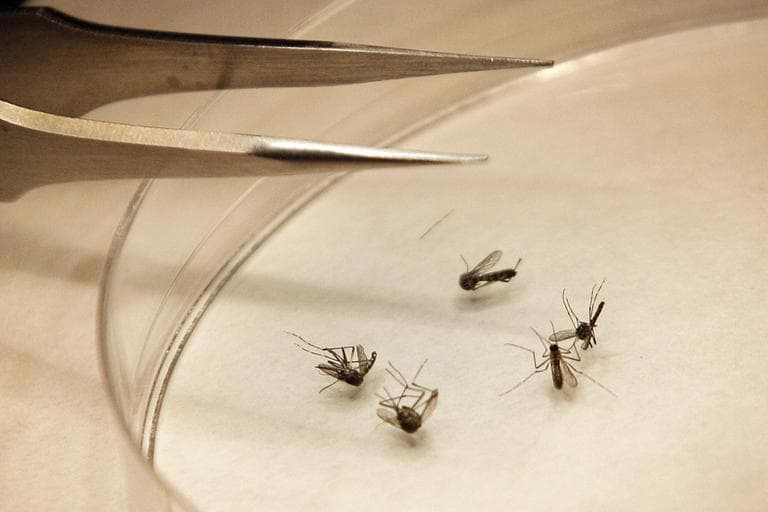Advertisement
West Nile Virus Outbreak
ResumeWest Nile Virus numbers are spiking nationwide. Is global warming driving the outbreak? And is the U.S in line for more tropical disease?

It's a wild season, already, for West Nile virus. Before 1999, we'd never seen it in the U.S. It was a scourge out of Uganda. Africa. Now, it's all over the United States. 2012 is shaping up as likely the worst season ever. 700-plus cases already. Dozens dead. Cities spraying. Dallas has declared a state of emergency. And lifestyles are changing as Americans shrink from mosquitoes, dusk, dawn.
They're going to change more. Climate Change is a bonanza for tropical disease. West Nile's just the start.
This hour, On Point: climate change and tropical disease, moving north in the U.S.A.
-Tom Ashbrook
Guests
Mike Rawlings, mayor of Dallas, Texas.
Peter Hotez, dean of the National School of Tropical Medicine at Baylor College of Medicine and the president and director of the Sabin Vaccine Institute and Texas Children’s Hospital Center for Vaccine Development. You can find his recent op-ed on West Nile here.
Kristy Murray, associate professor of pediatrics at the National School of Tropical Medicine at Baylor College of Medicine.
David Dausey, chairman of the Public Health Department and a tenured professor of public health at Mercyhurst University.
From Tom's Reading List
Time "There are no good ways to die, but death by the West Nile virus is worse than most. The tropical disease begins in birds, which pass it onto mosquitoes that then go onto infect human beings with a bite. Most people who contract West Nile won’t experience any symptoms at all, but about 1 in 5 will suffer fever, headaches and body aches, usually lasting a week or so. A far-less lucky 1 in 150 will experience high fever, tremors, convulsions, paralysis and coma. Some—especially the immuno-compromised and the elderly—will die."
Mother Jones "Aerial spraying to combat the West Nile virus will continue Friday night across north Texas despite the concerns of residents worried about potential health risks posed by the insecticide."
CBS News "Tarrant County officials say a Fort Worth man and North Richland Hills woman in their 80s with underlying conditions passed away due to complications from the disease. In the Dallas-Fort Worth area alone there have been 16 West Nile-related fatalities, with the number of Dallas County cases reaching 262, according to KERA in north Texas. More than 400 cases have been reported around the state."
This program aired on August 22, 2012.